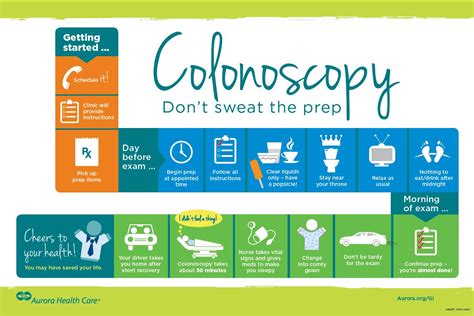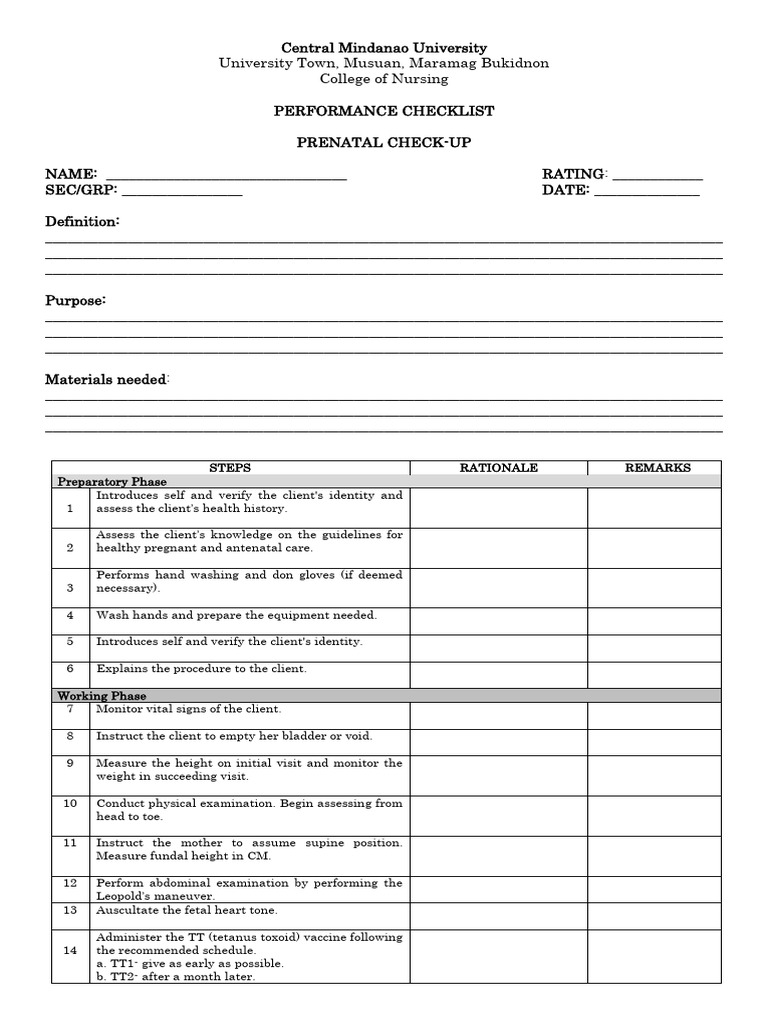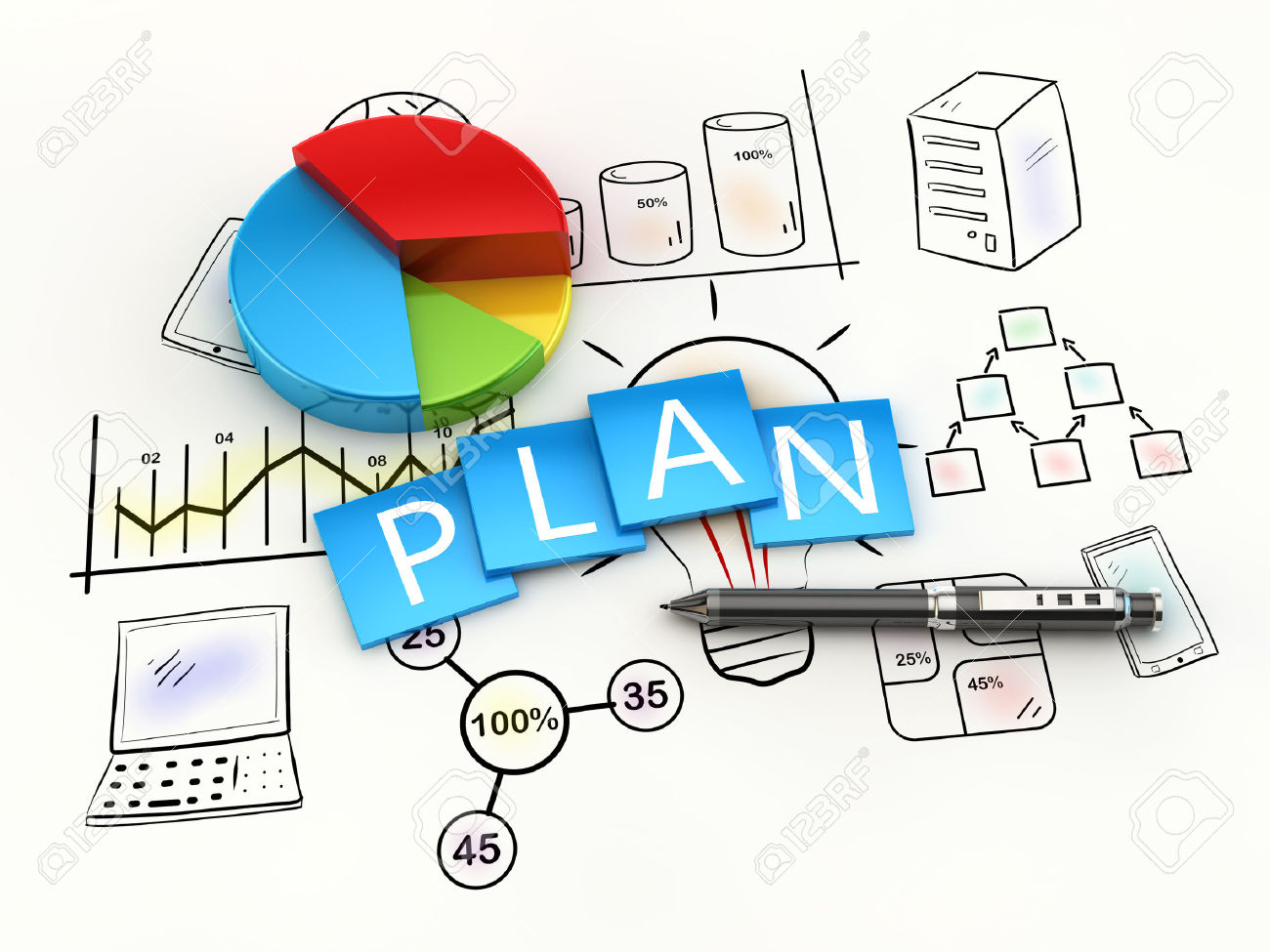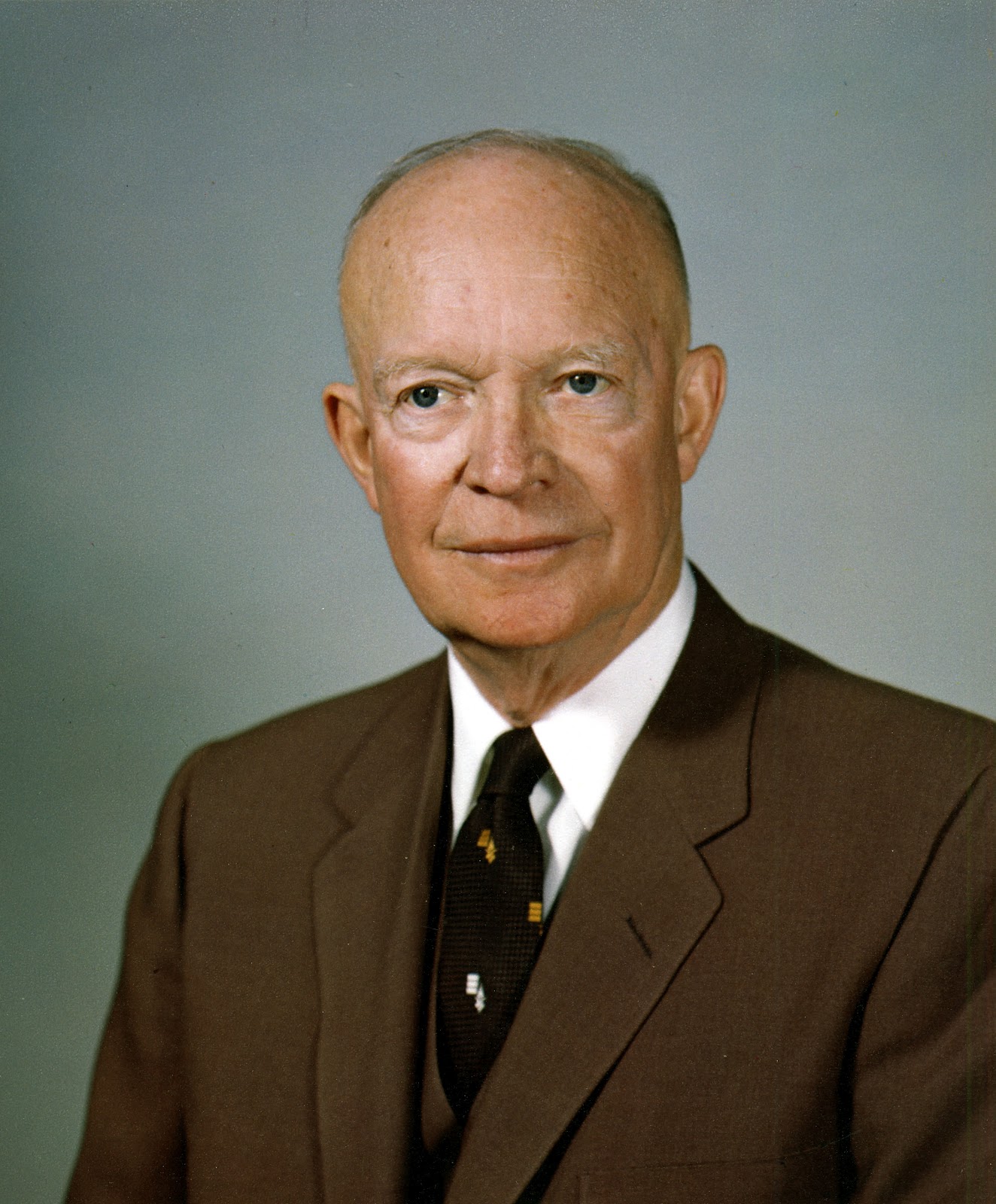Preparing For A Colonoscopy

The prospect of undergoing a colonoscopy can be daunting, but with the right preparation and understanding of the procedure, it can be a relatively straightforward and crucial step in maintaining gastrointestinal health. A colonoscopy is a diagnostic tool used to examine the lining of the colon (large intestine) for abnormalities, such as polyps, cancer, and areas of inflammation or bleeding. The procedure involves the insertion of a flexible tube with a camera and light on the end (colonoscope) into the rectum, allowing the doctor to visualize the inside of the colon on a monitor.
Understanding the Importance of Preparation
Preparation for a colonoscopy is crucial for several reasons. The primary goal is to ensure that the colon is completely clean and free of any fecal matter, which could obstruct the view of the colonoscope and compromise the effectiveness of the examination. A clean colon also reduces the risk of complications during the procedure. The preparation process typically starts a few days before the colonoscopy and involves dietary changes and the use of laxatives.
Dietary Changes
- Clear Liquid Diet: A day or two before the procedure, patients are often advised to switch to a clear liquid diet. This includes clear broths, plain water, clear sodas, gelatin, and electrolyte-rich beverages like sports drinks. The goal is to consume only liquids that are clear and do not contain any solid particles.
- Avoiding Certain Foods: It is recommended to avoid foods that are high in fiber or can leave residue in the colon, such as nuts, seeds, popcorn, and raw or dried fruits and vegetables, for a few days before the procedure.
Laxative Preparation
The most critical part of colonoscopy preparation involves the use of laxatives to cleanse the colon. There are different types of laxative preparations available, and the choice often depends on the patient’s health status, preferences, and the prescribing doctor’s recommendations. Common laxative preparations include:
- Polyethylene Glycol (PEG): A solution that works by filling the stomach and intestines with water, softening the stool, and inducing bowel movements.
- Sodium Phosphate: Another type of laxative solution that works by drawing water into the bowel from the surrounding body tissues, softening and increasing the bulk of the stool.
- Bisacodyl: Oral tablets that stimulate bowel movements.
Pre-Procedure Checklist
- Medications: Inform your doctor about all medications you are taking, including aspirin, ibuprofen, and any blood thinners, as these may need to be adjusted before the procedure.
- Allergies: Inform your doctor about any allergies to medications or latex.
- Transportation: Arrange for someone to drive you home after the procedure, as you may be drowsy from the sedation.
- Clothing: Wear loose, comfortable clothing to the procedure.
- Questions: Prepare a list of questions to ask your doctor during the initial consultation.
The Procedure
On the day of the colonoscopy, you will be asked to arrive at the hospital or endoscopy center with a companion. The procedure typically takes about 30 to 60 minutes to perform and is done under conscious sedation, meaning you will be awake but relaxed and not feeling pain. Here is what you can expect:
- Preparation: You will change into a hospital gown and lie on your side on the examination table.
- Sedation: Sedation will be administered through an intravenous line to help you relax.
- Insertion of the Colonoscope: The doctor will gently insert the colonoscope through the rectum and into the colon.
- Air Insufflation: Air will be introduced into the colon to inflate it and provide a better view.
- Examination: The doctor will carefully examine the lining of the colon, looking for any abnormalities. If any polyps are found, they can often be removed during the procedure.
- Removal: The colonoscope is slowly withdrawn, and the procedure is complete.
Recovery
After the colonoscopy, you will be taken to a recovery area where you can rest for about an hour. You may feel bloated or pass gas due to the air introduced during the procedure, but these symptoms are temporary. Your doctor will discuss the findings with you before you leave, including any biopsy results (if taken) and recommendations for follow-up care.
Conclusion
Preparing for a colonoscopy involves careful planning and adherence to the recommended dietary and laxative regimen. Understanding the importance of each step in the preparation process can help alleviate anxiety and ensure that the procedure is both effective and safe. It’s essential to follow your doctor’s instructions closely to guarantee the best possible outcomes from your colonoscopy.
What is the primary goal of preparing for a colonoscopy?
+The primary goal is to ensure that the colon is completely clean and free of any fecal matter, allowing for an unobstructed view during the examination and reducing the risk of complications.
How long does a colonoscopy typically take to perform?
+A colonoscopy usually takes about 30 to 60 minutes to perform.
What should I expect after the procedure?
+After the procedure, you may feel bloated or pass gas due to the air introduced into the colon. These symptoms are temporary. Your doctor will discuss the findings with you, including any next steps or follow-up care.
Why is it important to follow the recommended dietary changes before a colonoscopy?
+Following the recommended dietary changes, such as switching to a clear liquid diet, helps ensure that the colon is clean and free of solid particles, which is essential for a successful and uncomplicated colonoscopy.
Can I drive myself home after a colonoscopy?
+No, it is not recommended to drive yourself home after a colonoscopy due to the sedation used during the procedure. Arrange for someone to drive you home.
How often should I have a colonoscopy?
+The frequency of colonoscopies depends on your risk factors for colon cancer and the results of previous colonoscopies. Typically, individuals with average risk should have a colonoscopy every 10 years starting at age 45. However, your doctor may recommend a different schedule based on your individual health needs.
By understanding and carefully following the preparation guidelines for a colonoscopy, individuals can contribute to the success of the procedure, ensuring their gastrointestinal health is thoroughly assessed and maintained.



